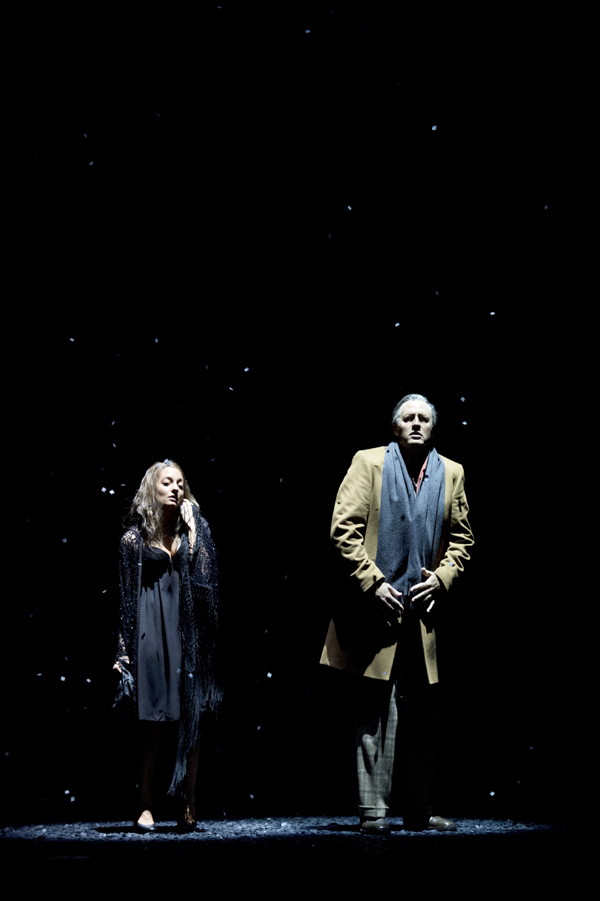Ionarts-at-Large: The Domestication of Pelléas and Mélisande
There they stand like two lonely snowmen: Christiane Karg’s Mélisande and Christian Gerhaher’s Pelléas at the opera’s end, as if they had never done anything else. And in truth, they hadn’t… such is the strangely intoxicating stasis of Debussy’s only opera.
Pelléas et Mélisande glides along at a tranquil pace on the deep black waters of Debussy’s music, an endless instrumental parlando accompanying the Maurice Maeterlinck text. Christian Gerhaher’s discomfited, hesitant Pelleas is perfect for the part and the Claus Guth’s production. Guth brings the work within smelling-distance of Ibsen’s family dramas. The meticulous set (Christian Schmidt) consists of the shifting and rotating two story manor of King Arkel; clad in the early to mid- 20th century bourgeois sumptuousness that is defined by expensive wallpaper and a few pieces of select wooden furniture. The well scene takes place in the imaginarium of the protagonists, who fled to the nursery upstairs for privacy.
 C.Debussy, Pelléas et Mélisande, R.Kubelik / BRSO & BR Chorus H.Donath, N.Gedda, D.Fischer-Dieskau et al. Orfeo     |
Golaud’s candelabra-bludgeoning of Pelléas—understandable after being built up as slow and excruciating as Fassbiner’s “Why did Herr R. run Amok”—is directed in imitate-slow-motion, a distinctive Guth-touch that he employed to greater effect in his ingenious Salzburg Don Giovanni. Guth’s domestication of Pelléas et Mélisande only enhances the work’s special character, away from mystery and half-enchanted wells. Depending on one’s predisposition that either makes for an extraordinary long three and a half hours of sophisticated drabness, or quiet delight in an kind of artful, inexorable stupor. Amazon’s algorithm would suggest: “If you like Robert Musil’s Man Without Qualitites, you might also like the Frankfurt Opera’s Pelléas et Mélisande.”
That, despite one notable weak spot: The orchestra under Friedemann Layer was solid but unsubtle, foursquare and dull, and rarely added depth or shimmer to the sound, instead opting for (or being limited to) a very direct kind of communication.





























































